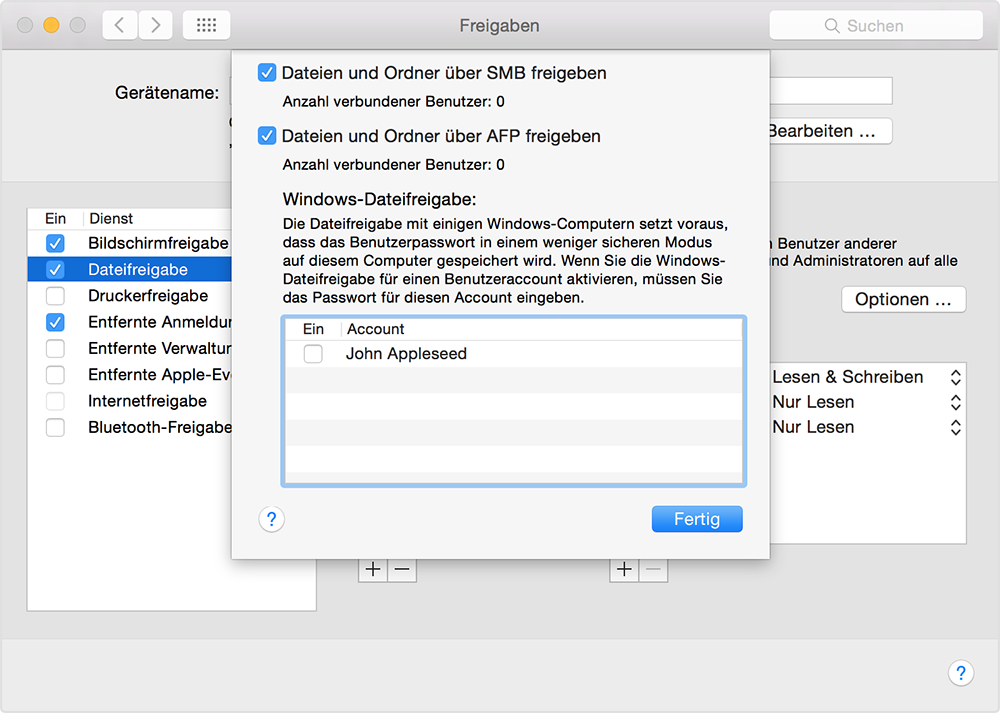Native file sharing protocols always win out
In an intranet, network clients have several options, such as AFP, NFS and SMB/CIFS, to connect to their file server. But for the best performance, and 100% compatibility, the native client file sharing protocol is the right choice. So AFP is the best protocol for all Mac clients through OS X 10.8, SMB is the standard for Windows clients, and NFS is perfect between UNIX servers. With the release of OS X 10.9 “Mavericks”, Apple fully supports both SMB2 and AFP.
In addition, remote users should be able to securely access server documents via web browser. And mobile users will appreciate a native app for server access and file sharing to their devices.
Afp Vs Smb
AFP AFP is clearly superior to SMB or NFS for Mac OS 8.1-OS X 10.8 clients AFP is the native file and printer sharing protocol for Macs and it supports many unique Mac attributes that are not supported by other protocols. So for the best performance, and 100% compatibility, AFP should be used. Performance and reliability. In fact, the SMB URL has to be. If you are writing applications or scripts which install volumes or printer shares offered by a Windows Server on a Mac OS X Client, this could be the perfect confusion. It made me nearly crazy because with every combination of the two companies' systems things work differently. In fact, the SMB URL has to be.
Mac Os Afp
NFS
NFS is good for UNIX server-to-server file sharing. However it is incompatible with Windows clients, and is useless for Mac file sharing clients due to missing features, and compatibility and performance problems with Mac apps.
SMB/CIFS
The native Windows network file sharing protocol is the preferred protocol for Windows clients.
AFP
AFP is clearly superior to SMB or NFS for Mac OS 8.1-OS X 10.8 clients
AFP is the native file and printer sharing protocol for Macs and it supports many unique Mac attributes that are not supported by other protocols. So for the best performance, and 100% compatibility, AFP should be used.
Performance and reliability
- AFP offers significantly faster read/write performance than SMB or NFS
- AFP supports server-based “fast find file” support – essential for today's large systems
- Macs work more reliably and faster using AFP
- SMB1 is less stable
Compatibility and features
AFP provides the most compatible sharing with the Mac file system (HFS+). At present, other Mac protocols including NFS and SMB offer only a fraction of the performance and have limited compatibility.
Click on table to enlarge view

Mac Smb Slow
OS X 10.9 “Mavericks” and later clients
Mavericks and its successor, OS X 10.10 (“Yosemite”), fully support both SMB2 and AFP. The preferred long-term protocol will be SMB2. HELIOS has a commitment to include full SMB2 support for Mavericks clients in the future. Switching to SMB2 too early will introduce major compatibility problems, therefore AFP is recommended by HELIOS for Mavericks clients. Macs using SMB2 with Windows or Linux servers have major limitations: missing Spotlight search support, missing server 'fast find file' support, missing ACL permission support, missing Time Machine backup support, missing Mavericks Finder tags support, and other incompatibilities. Only the Apple and a future HELIOS SMB2 server will support Spotlight searches over SMB2. We expect that Apple will make their SMB2 implementation more complete in future releases. At that time, customers will be able to use it without compatibility and performance problems.
Cross-platform file sharing – everyone wins
Business servers should therefore support cross-platform network file sharing for Mac, Windows, UNIX, Web, and mobile clients, via AFP, SMB/CIFS, SMB2, NFS, and HTTP. HELIOS Software is the only vendor to offer such integrated cross-platform networking, with their File Server Bundle comprised of EtherShare (AFP), PCShare (SMB/CIFS), WebShare (HTTP), and iPad Document Hub (iOS). Enterprise grade multi-user remote synchronization of files between the company server and user workstations and mobile devices is included as well. The suite is also fully compatible with NFS shares, and will add SMB2 support for future OS X versions.
Note that integrated cross-platform networking is essential, so that different network client platforms can share the same server volumes without problem, and even take advantage of the features of other protocols. For example, HELIOS integration includes cross-platform support for file and record locking, user names, group names, user authentication, file system permissions, volume access permissions, file text and meta data indexing and searches, file labels and comments, HELIOS Admin, etc., while avoiding the redundancy, conflicts, and extra administrative overhead inherent in à la carte network protocol conglomerations.
Conclusion
Businesses and network administrators can no longer look at network client protocols in isolation. Rather, a holistic all-encompassing overview is necessary. Windows-centric networks must make room for server file sharing to Macs, mobile devices, and remote access via web browser. And Mac-centric networks must prepare to support both AFP and SMB2.

HELIOS has over 20 years experience developing such cross-platform solutions, and makes deployment and support a one-vendor solution.
